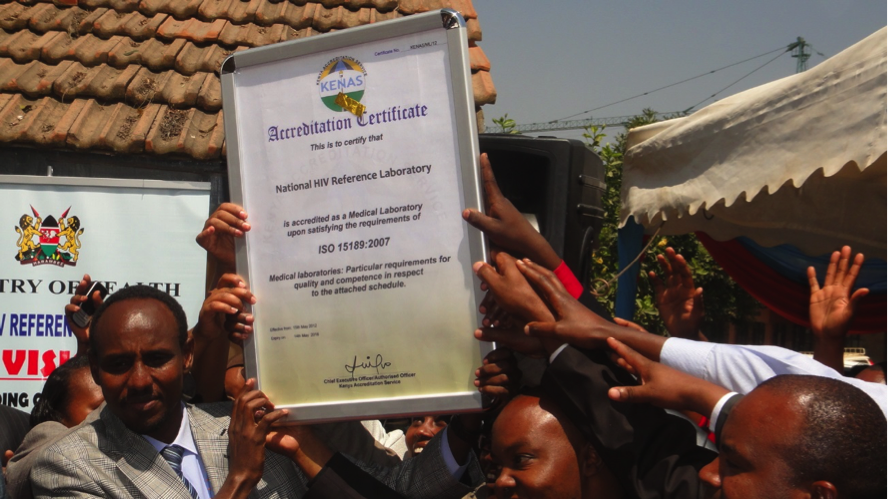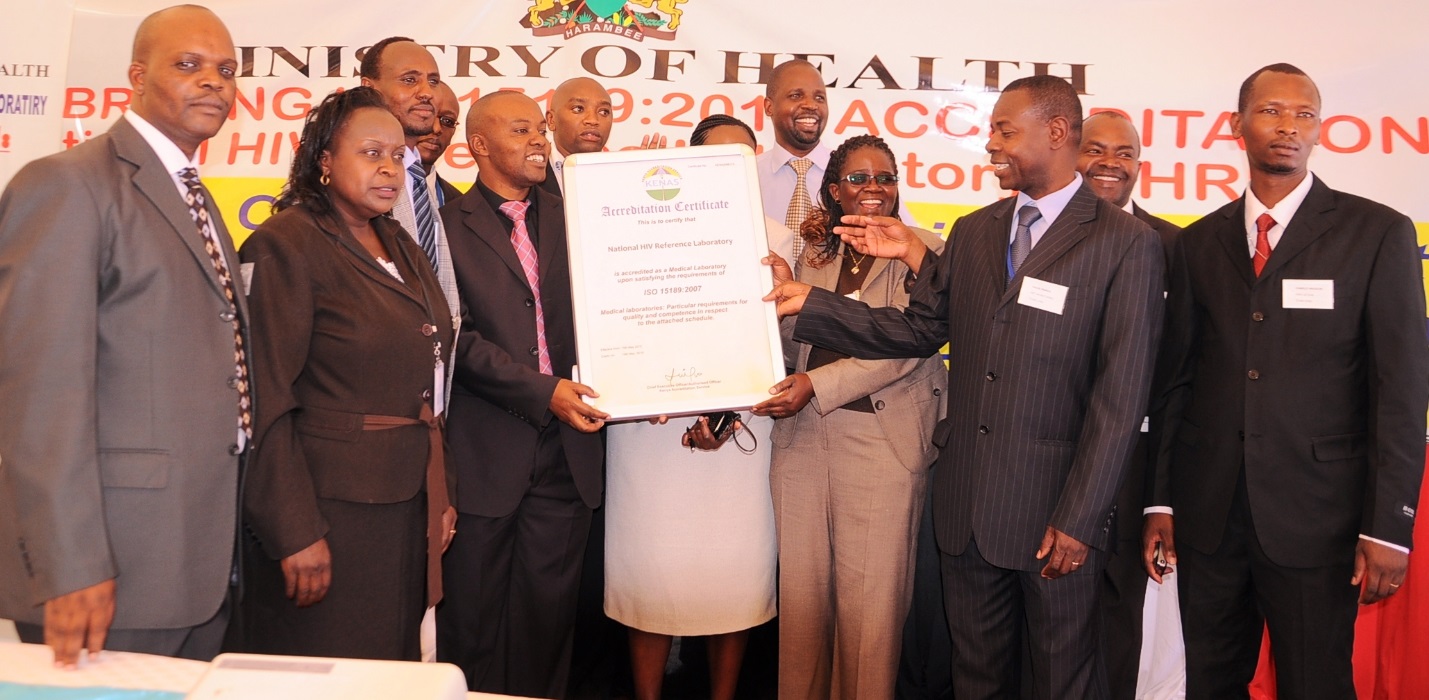National HIV Reference Laboratory, Kenya

NHRL STAFF holding the accreditation certificate
Visible from the front left: Mamo Umuro (previous Laboratory Manager), Thomas Gachuki (previous QA Manager), David Njogu (Logistician, NHRL)

From left, Bosley Nyandieka (NHRL staff), Hellen Barsigan (NHRL staff), Mamo Umuro (previous Laboratory Manager). Thomas Gachuki (previous QA manager), Richard Kihara (NHRL staff), Roselyn Warutere (NHRL staff - hidden, holding the certificate), Stephen Kipkerich (QA Officer), Risper Sewe (current QA Manager), Caleb Ogada (Section Head, NHRL), and David Njogu (Logistician, NHRL)
- What was the hardest thing to do in order to get accredited?
To change staff attitudes so they own the process.
- What was the easiest?
Monitoring staff compliance of the established system with the policies and procedures.
- What was the most important contributing factor to getting accredited?
Having management that fully supported the accreditation process.
- What steps did you take?
- Step 1 :Ensured management understood the purpose of accreditation.
- Step 2 :Trained all staff on Good Clinical Laboratory Practice, SLMTA and biosafety.
- Step 3 :Obtained mentorship for laboratory accreditation.
- Step 4 :Conducted ISO training.
- Step 5 :Secured Technical Assistance.
- Step 6 :Sensitized staff members to change attitudes.
- Step 7 :Established a strong QA committee to spearhead the accreditation process.
- Step 8 :Facilitated team work so staff have ownership of the process.
- What were the biggest mistakes you made?
Not involving the staff members on the implementation process initially
- What is the best advice you can give to others?
Laboratory accreditation is highly regarded both nationally and internationally as a reliable indicator of technical competence and trust in the services offered. Through accreditation our laboratory has been identified as one which can perform specialized tests and national surveys, and this benefitted both the staff and the public.
